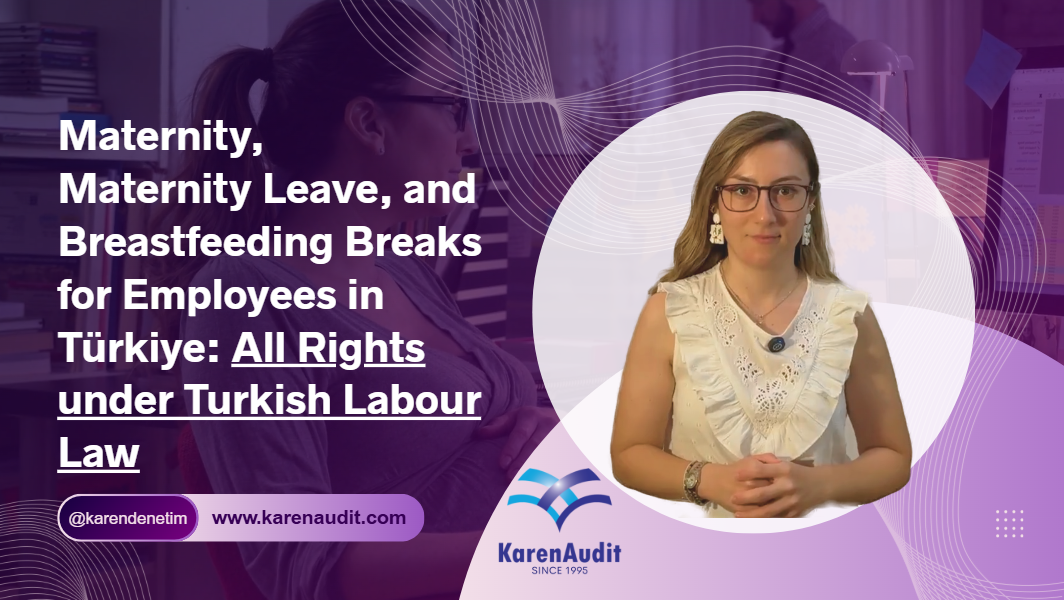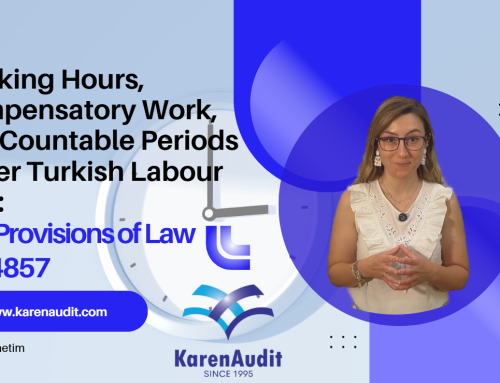Are you a foreigner working or planning to work in Türkiye? Or perhaps an employer hiring female employees? Understanding the maternity, breastfeeding, and parental leave rights under Turkish Labour Law is crucial — not just for legal compliance but also for fostering a supportive workplace environment.
In this article, we break down everything you need to know about these important rights in Türkiye.
How Long Is Maternity Leave in Türkiye?
Under Turkish Labour Law, female employees are entitled to 16 weeks of paid maternity leave — split equally as 8 weeks before childbirth and 8 weeks after.
In the case of a multiple pregnancy (twins, triplets, etc.), an additional 2 weeks of leave is granted before delivery.
Can Unused Prenatal Leave Be Transferred If the Baby Is Born Early?
Yes. If the baby is born earlier than expected, any unused portion of the prenatal leave is added to the postnatal period, ensuring the mother still receives the full duration of paid leave.
Can a Woman Work Until the Last Three Weeks of Pregnancy?
Yes, with a doctor’s approval and if her health allows, a woman may continue working up to 3 weeks before delivery. Any worked days beyond the standard prenatal leave period are then added to her postnatal leave.
What Happens If the Mother Passes Away After Childbirth?
In the tragic event of a mother’s passing, the remaining postnatal leave is transferred to the father.
Is There Maternity Leave for Adoptive Parents?
Yes. If a child under the age of 3 is adopted, one of the adoptive parents is entitled to 8 weeks of maternity leave, starting from the date the child joins the family.
Can Mothers Work Part-Time After Childbirth in Türkiye?
Yes. Mothers can request part-time unpaid leave after childbirth for the following periods:
-
60 days for the first child
-
120 days for the second child
-
180 days for the third and subsequent children
For multiple births, an extra 30 days is added, and for children born with disabilities, this period extends up to 360 days.
📌 Note: During part-time leave, breastfeeding leave is not applicable.
Are Pregnant Employees Entitled to Paid Leave for Medical Check-Ups?
Absolutely. Pregnant employees have the right to paid leave for regular medical examinations during pregnancy.
Can a Pregnant Employee Request Lighter Duties?
Yes. If recommended by a doctor, pregnant employees may be transferred to lighter duties that are better suited to their health — with no reduction in salary.
Is Unpaid Leave Available After Maternity Leave?
Yes. After completing paid maternity leave, employees may request up to 6 months of unpaid leave. This also applies to adoptive parents of children under 3 years old.
📌 Note: This unpaid leave does not count towards the employee’s annual paid leave entitlement.
What Are the Breastfeeding Leave Rights in Türkiye?
Working mothers are entitled to 1.5 hours of daily breastfeeding leave until their baby turns one year old.
The mother decides how and when to take this time, and it is considered part of the workday — meaning it is fully paid.
Who Is Covered by These Rights?
All employees working under an employment contract in Türkiye are entitled to these rights, regardless of whether they are explicitly covered by the Labour Law or not.
Whether you’re an employer hiring in Türkiye or a foreign employee navigating the local labour laws, understanding maternity and breastfeeding rights is key to ensuring a healthy, compliant, and supportive workplace.
Do you have questions or need tailored legal advice? Our team is here to help you navigate Türkiye’s employment laws with confidence.
📩 Contact us today for personalized assistance.
You can watch our video about this and subscribe for more!
Legal Notice: The information in this article is intended for information purposes only. It is not intended for professional information purposes specific to a person or an institution. Every institution has different requirements because of its own circumstances even though they bear a resemblance to each other. Consequently, it is your interest to consult on an expert before taking a decision based on information stated in this article and putting into practice. Neither Karen Audit nor related person or institutions are not responsible for any damages or losses that might occur in consequence of the use of the information in this article by private or formal, real or legal person and institutions.






